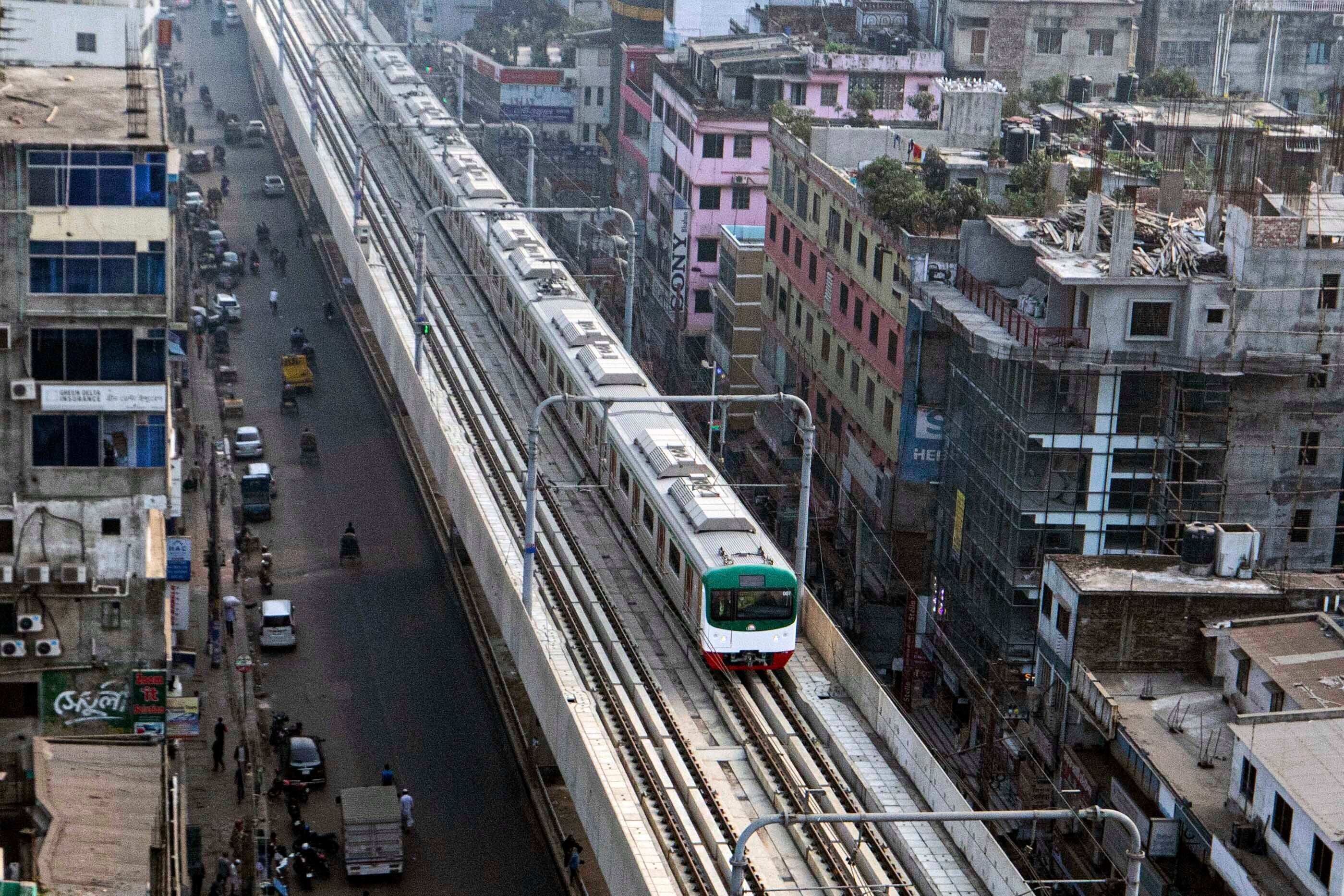Bangladesh opens first metro service to ease Dhaka traffic
Bangladesh’s prime minister has inaugurated the country’s first metro rail service aimed at easing notorious traffic jams in capital Dhaka

Bangladesh launched its first metro rail service, mostly funded by Japan, in the densely populated capital on Wednesday amid enthusiasm that the South Asian country’s development bonanza would continue with both domestic and overseas funds.
Prime Minister Sheikh Hasina inaugurated the service accompanied by newly appointed Japanese Ambassador Kiminori Iwama and Ichiguchi Tomohide, the chief representative of Japan International Cooperation Agency, or JICA.
“We have added another feather of pride to the crown of Bangladesh’s people today. Another feather added to the crown of the development of Bangladesh,” she said during the inauguration.
Hasina used the ceremony to commemorate six Japanese rail engineers working on the project who were killed during an attack on a Dhaka cafe by Islamic extremists in 2016. A total of 29 people died, including 20 hostages.
In June, Hasina inaugurated a 6.51-kilometer (4.04-mile) bridge spanning the Padma River, which was built by China at a cost of about $3.6 billion that was paid with domestic funds. It was one of more than 100 bridges Hasina has opened in recent months.
The opposition often accuses Hasina's government of corruption in implementing big projects, but it denies the allegations.
A limited version of the metro service was launched on Wednesday, and is expected to grow to over 100 stations and six lines crisscrossing the city by 2030.
A section of the first line connects a prime neighborhood on Dhaka’s periphery with the city center. It was built with a $2.8 billion price tag and largely funded by JICA.
The line is expected to carry 60,000 people each hour when it is fully operational, according to project documents.
Dhaka is one of the world’s most densely populated cities with over 20 million people who struggle to commute on clogged roads. According to a research by the Bangladesh University of Engineering and Technology, the economy in Dhaka loses about $3 billion each year in lost work time due to traffic jams.
Iwama, the Japanese ambassador, highlighted the long-standing relationship between Bangladesh and Japan. He also underlined his commitment to deepening the ties as more Japanese investment and finances are coming to Bangladesh.
JICA chief Tomohide said the metro rail project was a “shining example” of cooperation between the two nations and will “change the lives of the common people in Dhaka."
Both Japan and China are major development partners of Bangladesh, which strives to graduate from the least developed to a developing nation by 2026 on a World Trade Organization list.
Bookmark popover
Removed from bookmarks